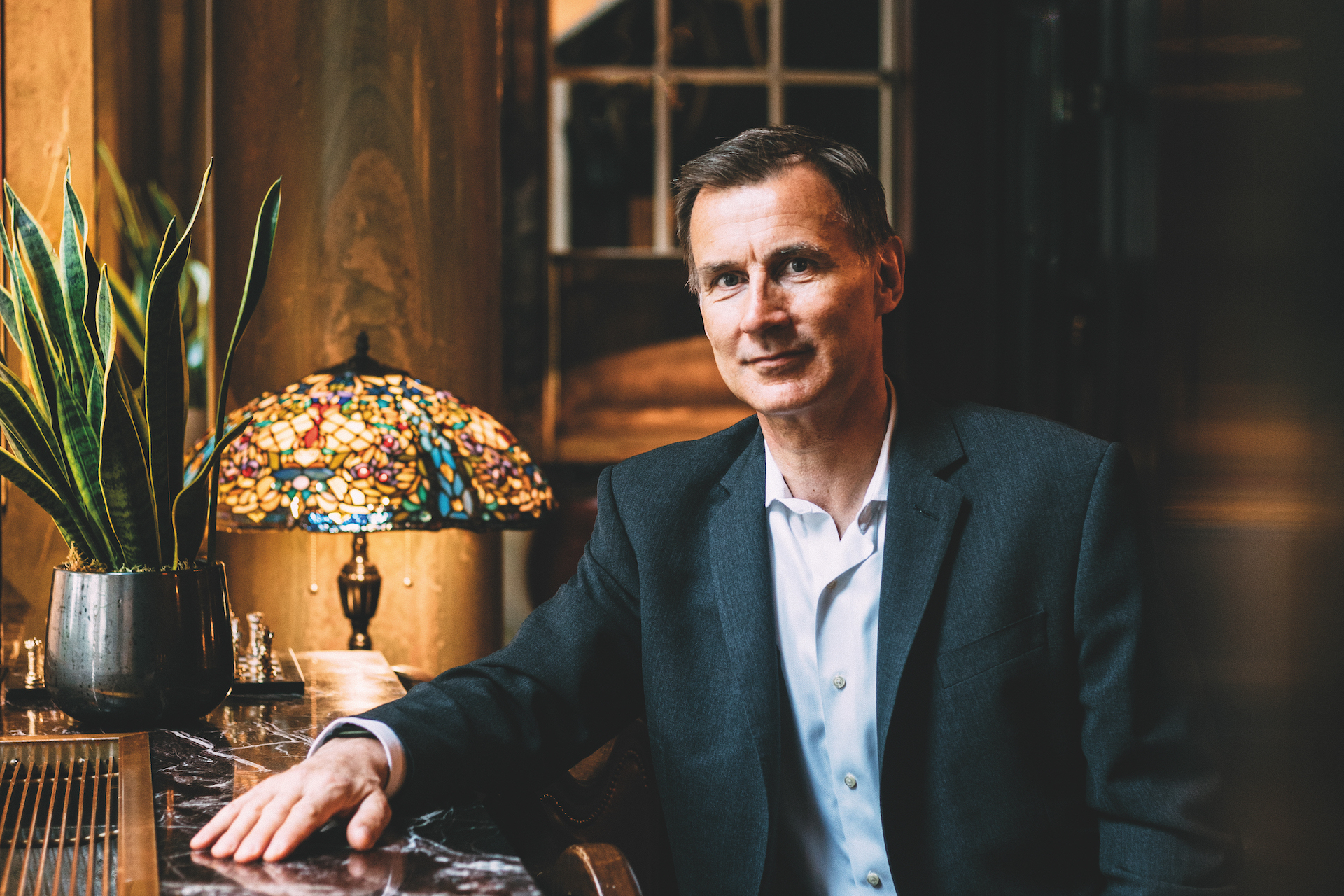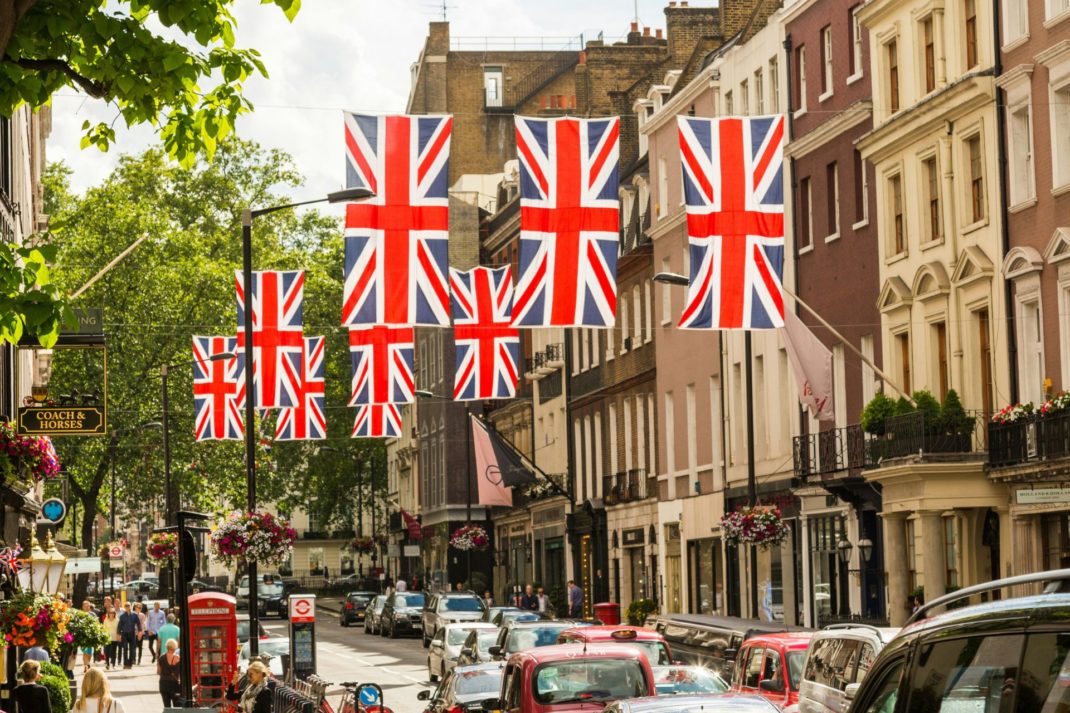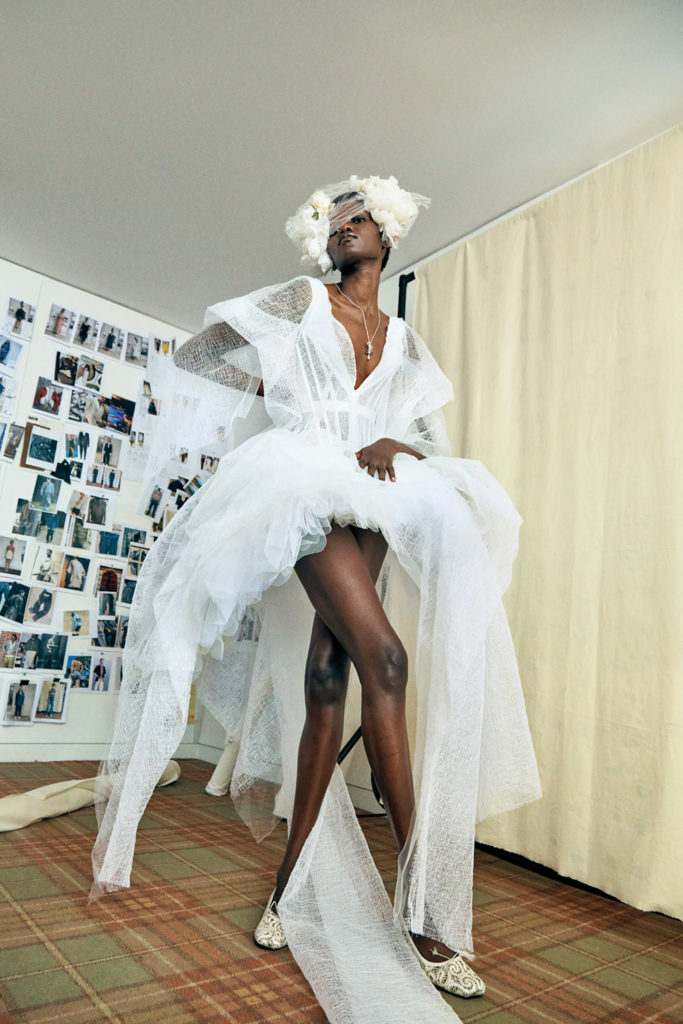Conversations at Scarfes Bar: Jeremy Hunt, Chancellor of the Exchequer
By
3 years ago
On running for PM and leaving a 'lasting legacy'

Jeremy Hunt is on a mission to transform the NHS – but nor would he say no to throwing his hat in the ring for the top job of PM one day, finds Charlotte Metcalf.
Please note this article first appeared in C&TH’s July/August 2022 issue.
Conversations at Scarfes Bar: Jeremy Hunt

Photo: © Alexandra Dao
Jeremy Hunt’s new book, Zero, was published the day before we met. I had just days to read it, but I was so hooked that I fi nished it within 24 hours. Zero is an account of Jeremy’s time as our longest-serving Secretary of State for Health, during which he had numerous emotional confrontations with the relatives of those who’d died unnecessarily while in the care of the NHS. Jeremy remains so dismayed by those deaths that as a backbencher he’s continuing to focus on eliminating them altogether – hence the book’s title.
Jeremy arrives at Scarfes by bicycle, and we start by talking about Dr Rachel Clarke, his ‘nemesis’, with whom he clashed bitterly over the junior doctors’ strike. Dr Clarke wrote in The Guardian that she ‘disconcertingly entirely agreed’ with most of Jeremy’s book but went on to describe it as the ‘emollient’ prose of a ‘consummate politician’.
‘Of course, I’m a professional politician, but politics were not the motive for the book,’ Jeremy counters. ‘I wanted to write it because there’s an argument I need to win. Rachel was right to say I failed to focus on the devastating impact of austerity measures on the NHS, but I didn’t believe austerity was the cause of all those deaths. What’s causing them is the pervasive blame culture.’ He cites the recent case of a teenage boy dying at the hands of a paramedic. ‘When you or I make a mistake, no one dies. Health is the only industry in which death happens regularly. I have little doubt that paramedic feels devastated. Deaths can only be avoided if we seek out why they happened, not just look for someone to blame.
‘In hindsight I put my hands up – I got things wrong and made over-confrontational speeches,’ he says of the doctors’ strike. He became a divisive and often loathed fi gure, yet his commitment to the NHS appears both fi rm and genuine. ‘People are proud that the NHS is free but that’s not enough,’ he insists. ‘It must be accessible to duke and dustman alike, but it must also be of the highest quality and how can it be when we don’t train enough doctors?’
Wouldn’t it help if pharmacists could dispense drugs without prescription? ‘Ah! I know the answer to that one,’ he grins. ‘By 2025 or six, all pharmacists will be able to do that.’ Yet empowering pharmacists won’t address the dire shortage of doctors, due to the expense (about £250,000 a head) of training them. ‘I wish I’d known how fundamental training enough doctors and nurses was for our future,’ he says. ‘Germany has 60 per cent more doctors a head, France 20 per cent and even our NHS visa policy allowing in more from abroad is not a get-out-of-jail card, because there is a global shortage of 2.1 million doctors and 15 million nurses. And is it ethical to drain brains from countries like Somalia where medics are so desperately needed?’
So, what’s the answer? He believes in continuity of care and ‘relationship medicine’. ‘If you have your own family doctor, you’re 30 per cent less likely to die. GPs used to go into hospitals and oversee their patients’ operations and there was a real sense of accountability, but now people often never see the same doctor twice. You get asked if you smoke or drink every time afresh but a doctor you see regularly can judge the right moment to nudge you away from those, which is much more effective.’
But can things really change and does the [now-former] Health Secretary Sajid Javid agree with him? ‘Well, he has my book and is sincere in wanting the best,’ Jeremy smiles. ‘When I entered Cabinet in 2010, I thought success was measured by how much you changed things. But as Health Secretary I was so shocked by what I saw that I realised real leadership is not about changing things but about changing minds. I don’t mean to compare myself to giants like Thatcher or Mandela, but they’re a huge influence as they changed the way we think and that’s a much more lasting legacy.’
Of his own legacy he says, ‘Being the longest serving Health Secretary might be the biggest thing I’ll ever do, and if I’ve shifted the dial on preventable deaths, that’s good.’ He’s relaxed as I ask if he has his eye on the leadership: ‘I’ve been very happy spending more time with my family and in my constituency and now would not be a good time to mount a challenge. But I don’t rule it out. Never say never.’
In the meantime, he’s off to Hay Festival where he will be in conversation with Dr Clarke. That morning, she had tweeted her outrage at the fi ndings of the Sue Gray report, and though I’ve been warned by Jeremy’s team not to mention Partygate, I can’t help but think that, despite their differences, Jeremy and Dr Clarke will ultimately prove to be allies of sorts. One thing is certain – Jeremy is not about to relinquish his battle to transform the NHS. Zero is just the beginning.
Zero: Eliminating Unnecessary Deaths in a Post-Pandemic NHS
READ MORE
Conversations at Scarfes Bar: Anya Hindmarch / Conversations at Scarfes Bar: Julia Peyton-Jones


















